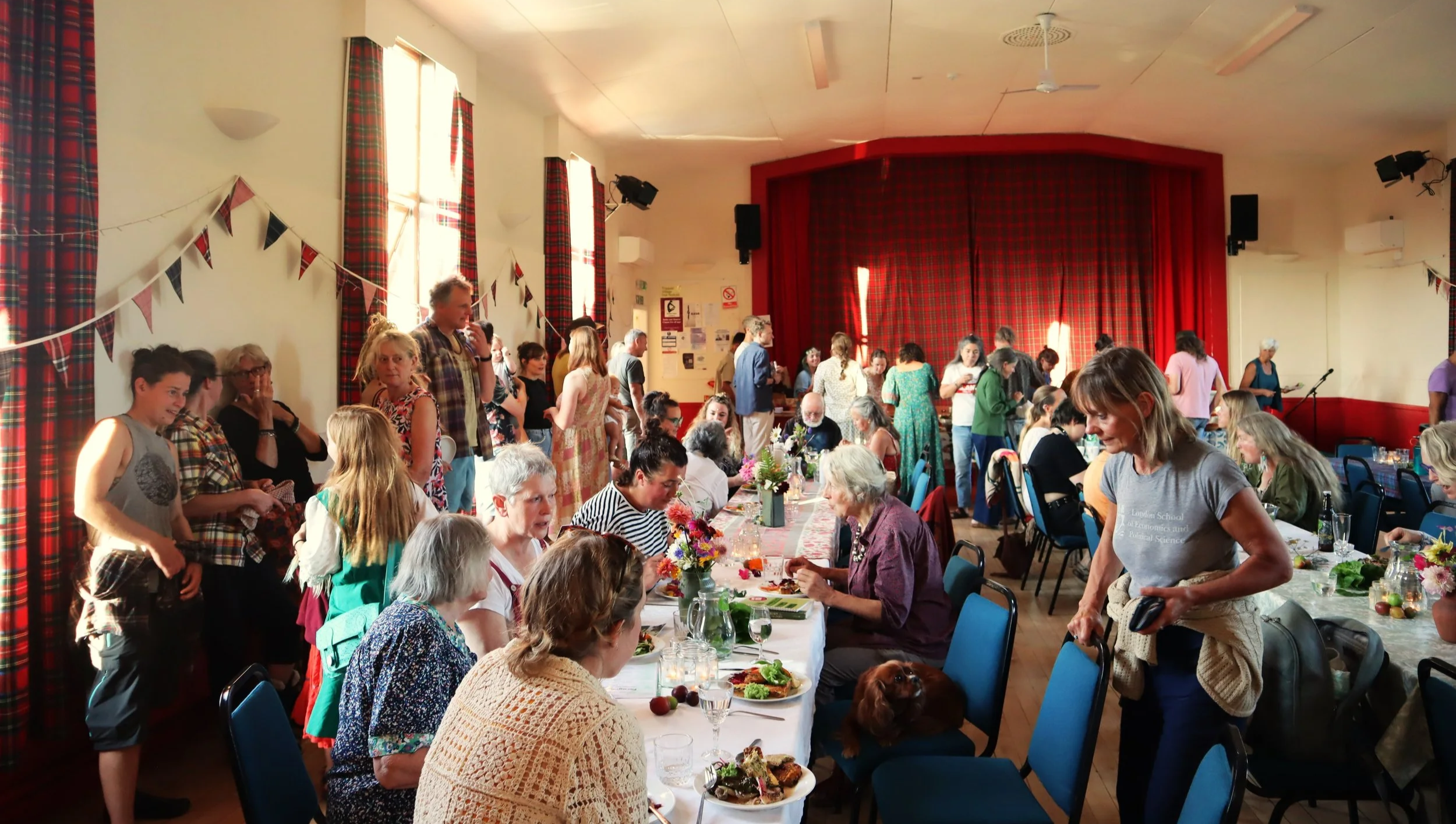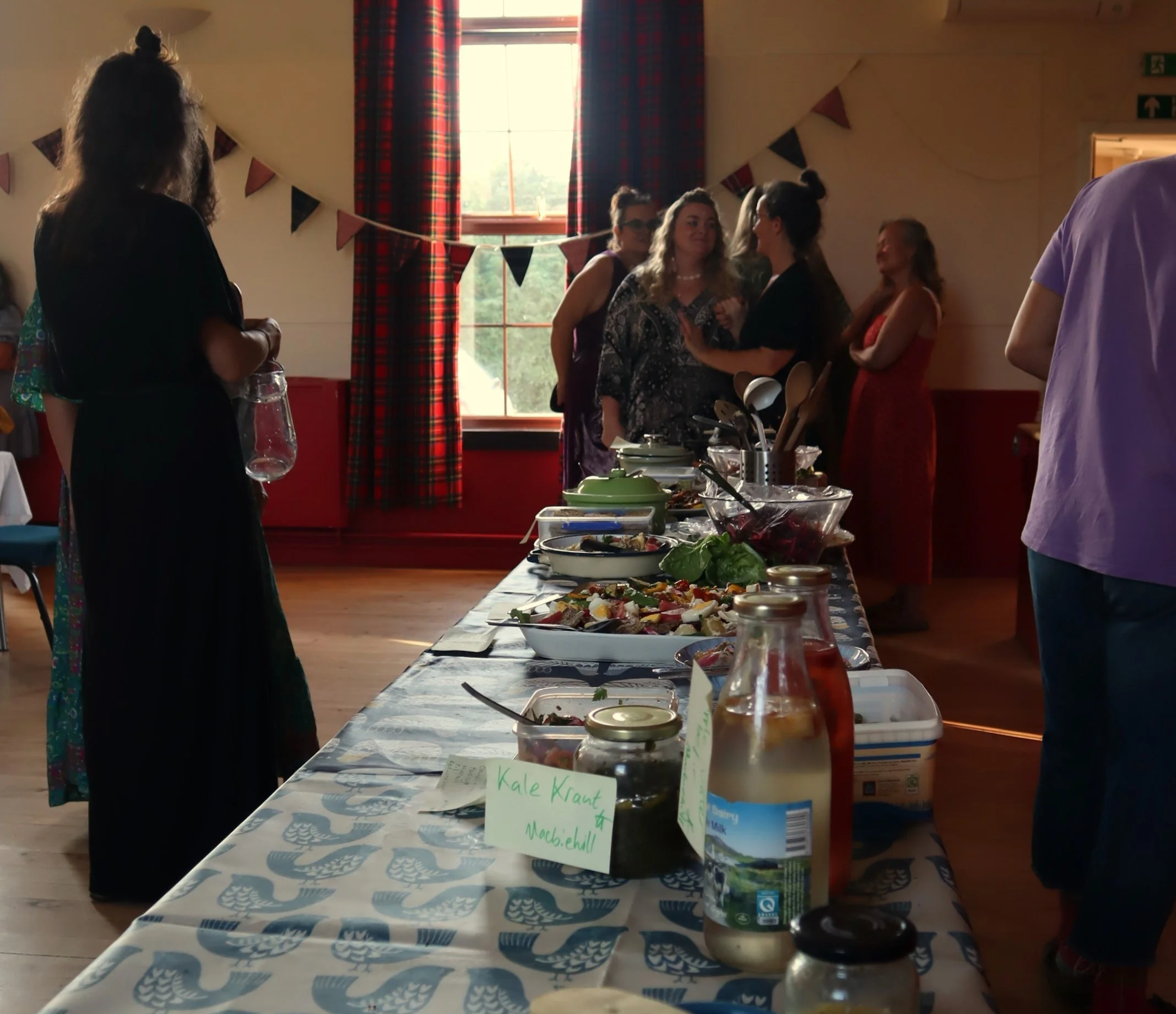The Tweed Feast
In the Tweed valley a new generation is trying to recapture a past way of living, one which was probably unfamiliar to their parents, perhaps even to their grandparents. This way of living requires them to live seasonally, in a subsistence way, whilst actively supporting local food cultures and producers. There is much value to be found in this ethos, not only from the perspectives of food sovereignty and environmental stewardship but also from the benefits that these actions can have on the health and well being of individuals and communities. At Traquair Village Hall, last Thursday evening, the majority of the fifty-plus people gathered at the very first Tweed Feast, clearly espoused the belief that well being cannot be separated from the ambition of producing what you eat. In a society increasingly divorced from nature and its cycles, there is a special purpose to be found in growing your own.
The Tweed Feast was a gathering celebrating the food produced and available locally in the Tweed Valley. Attendees were invited to bring their own dishes to the pot-luck style event, the proviso being that all food should, as far as possible, be locally sourced. Achieving this can prove surprisingly challenging in modern-day Scotland; however, this was not always the case. In fact, until the eighteenth century local food security was one of the main concerns in rural Scotland with landowners imposing fines upon those found to be buying foodstuffs from beyond their local parish. Speakers at the Feast highlighted more recent disappearances from the Tweed Valley food system: such as the harvest-home custom of the kirn and the loss of dairies in the Peebles area. There was a realisation that when seeking to restructure our food system, we cannot simply turn back the clock. As one of the speakers Alan Watson Featherstone, founder of Trees for Life, indicated, we must find a new path. Modern, rural society is very different from the one that once celebrated the kirn together. 21st century expectations now demand a heretofore untold variety in our year-round diet, a freedom from physical labour outside of paid employment, whilst changes in population size and reduced access to growing space make a return to past ways difficult.
We heard all this while over 50 people gathered in the hall to feast, and they kept on coming long after the doors had initially shut. Local fruit and vegetables, potato salads aplenty, goat stew, and home smoked fish, beetroot and plumcake, courgette buns and onion tarts, with these, plates were laden high and there was enough for seconds. Children ran about among tables and all generations ate and spoke together as the sun went down on Traquair.
Whilst the objective that everyone should have access to healthy, affordable, locally sourced food is laudable, it was recognised by the organisers of the Tweed Feast that this aspiration is unfortunately not available to everyone; however, in rural, farming communities, such as that found at Traquair, it seems absurd that the gap between food production and plate has grown so large. This is why the Tweed Food Sovereignty Group, organiser of the Tweed Feast, has been gathering now for over a year. The group aims to create a network which can connect individual producers. They want to secure spaces for growing whilst also stemming the loss of food production knowledge from the area whilst we still have time.
As plates were cleared and chairs stacked in the village hall, so the post-meal music could begin, talk turned to the many issues raised by the wonderfully sociable Tweed Feast. Why is it so difficult to buy local porridge oats? (For those searching, Eden Valley Organics near Kelso is a wonderful local supplier who supported this event) How can it be easier to buy lettuce from Spain than Scotland? Access to land, the low-cost of food, low-quality of diet, sustainability of production, many people will have dwelt upon these problems as they travelled home. As of yet, there are more questions than answers but at the Tweed Feast at least the right questions were being asked.


